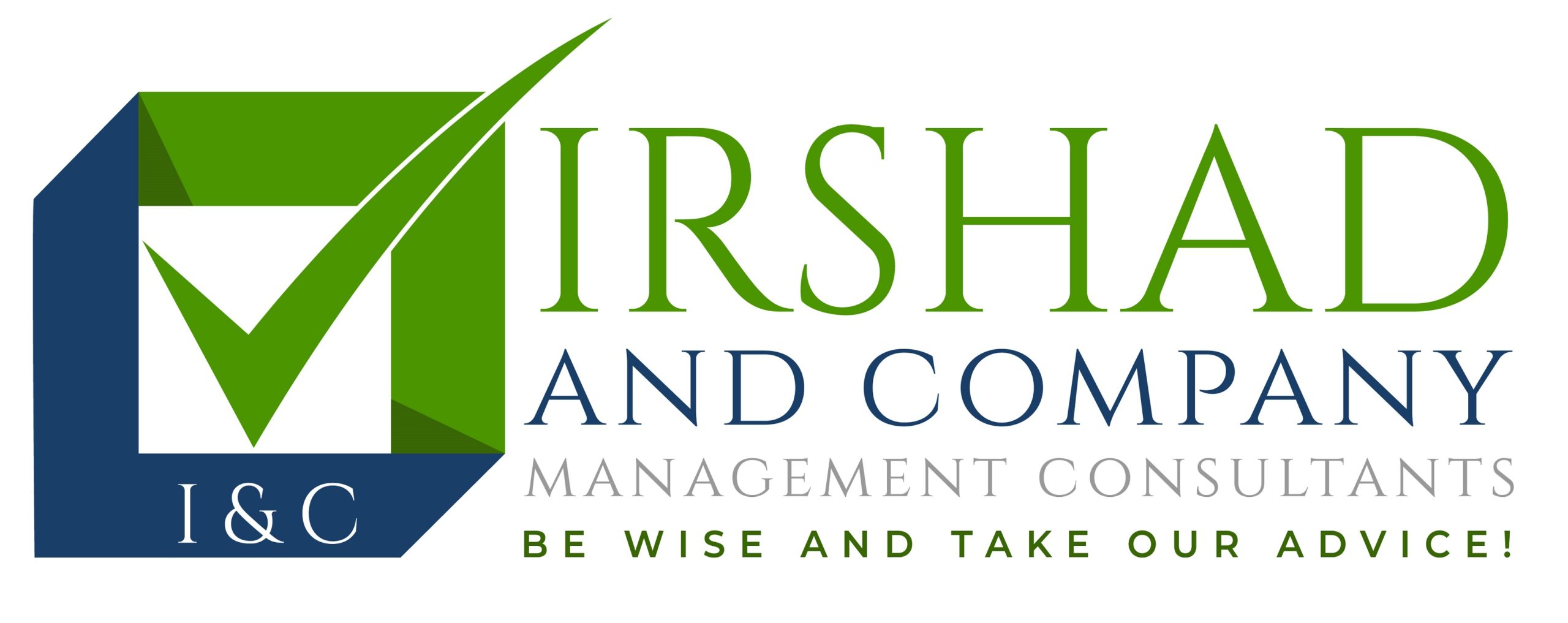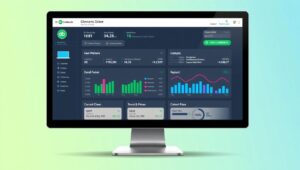AI in Accounting is revolutionizing the way financial processes operate where companies achieve up to 80% automation of processes, such as data entry, quality control and bookkeeping. Hence, PwC indicates that 58% of finance leaders anticipate that AI will profoundly improve functions over the next two years. Not only is this change effective but also it enables route optimization and increases the opportunities that accountants have in providing financial analysis, strategy development, and consulting services.
AI in accounting is revolutionizing the industry and helping firms to assist clients in achieving more value through the supply of well-timed, precise and pertinent services, on the account of technologies like machine learning and natural language processing.
Key Takeaways
- AI in Accounting automates up to 80% of routine tasks, increasing productivity.
- It boosts efficiency, accuracy, and decision-making.
- Accountants can focus on higher-value tasks like financial strategy and planning.
- Machine learning and natural language processing are the driving technologies.

A Comprehensive Overview of AI in Accounting
Artificial Intelligence is however not mere automation but a complete reinvention in the accounting stream. Such removal of duplicate tasks helps to allow the Accountants be more effective and efficient when offering solutions that can respond faster together with having improved accuracy using AI.
Key Applications of AI in Accounting
- Automated Data Entry: Reduces human error and saves time.
- Financial Analysis: Offers data-driven insights for smarter decision-making.
- Compliance Monitoring: Ensures adherence to financial regulations and reduces risks.
| Key Component | Description |
|---|---|
| Automated Data Entry | Automates the process of entering financial data into systems, reducing errors. |
| Financial Analysis | Identifies trends and supports business growth through actionable insights. |
| Compliance Monitoring | Tracks and ensures compliance with financial laws and standards. |
Revolutionising Traditional Accounting Practices
AI is revolutionising the way accountants perform their tasks for instance by handling accounts receivable and payable processing. This relieves professionals of such reprioritizing and enables them to perform higher-value-added activities.
Advantages of AI in Accounting:
- Enhanced financial reporting accuracy and speed.
- Improved compliance and risk management.
- Greater focus on high-value tasks like tax planning and business forecasting.

Traditional Accounting vs. AI Accounting: A Comprehensive Comparison
Over the years, the accounting industry has been experiencing radical changes mainly due to the introduction of AI in accounting. traditional accounting as a process of organizing financial information for decision making has been largely existent for generations; however the introduction of AI technology is changing the manner in which functions are accomplished. Let’s compare traditional accounting and AI accounting across various dimensions:
1. Efficiency and Speed
Traditional Accounting:
- Manual Processes: Traditional accounting greatly incorporates the use of typing in the data, setting up and solving mathematical equations, and producing the reports. This may take time and open the process for thay producers to make mistakes here and there.
- Slow Turnaround: Such functions as data input, accountancy work, and filing of annual returns are time-consuming, and may require days or weeks to be accomplished, more so during rush hour.
AI Accounting:
- Automation of Routine Tasks: Some of specific areas where AI can be used are; entry of data, bank reconciliations, invoicing to mention but a few which do take considerable time to accomplish.
- Real-Time Updates: Employing AI, financial data is analysed in real-time, and businesses can improve speed of reporting and decision-making.
AI accounting increases the speed of financial processes, reducing the time needed for repetitive tasks.
2. Accuracy and Error Reduction
Traditional Accounting:
- Human Errors: Experiences in manually developing and keying lengthy accounting figures may also result in errors such as misreports, misclassifications, or omitting some lines of transactions.
- Reconciliation Issues: Often the processes of verification are carried at least in two times, and even small discrepancies could remains unnoticed for a long time.
AI Accounting:
- Data Accuracy: AI tools rely on algorithms that are less likely to be wrong than when humans are doing the same. They self-check for variations and highlight them hence increasing data reliability.
- Intelligent Error Detection: AI, with machine learning models, can easily identify much more errors and inconsistencies in financial data than a human can.
AI accounting significantly reduces errors and improves the precision of financial records.
3. Cost Efficiency
Traditional Accounting:
- High Labor Costs: Conventional accounting involves extensive use of human work to input data, sort and organize documents, and make calculations. This usually results to high operating cost.
- Manual Workload: With the increase in volume, there is need to hire more employees or work extra hours toACING accounting firms’ expense.
AI Accounting:
- Reduced Labor Costs: Herein the information flow is partially automated, thereby reducing the direct labor costs required for accounting.
- Cost-Effective Scaling: The AI or the BOT applications, therefore, have the capability and flexibility of scaling up the work load quickly with no need for hiring more employees to fit the increasing capacity of growing businesses.
AI accounting offers long-term cost savings by reducing reliance on human labor and streamlining processes.
4. Financial Insights and Decision-Making
Traditional Accounting:
- Limited Insights: Traditional accounting systems give key-data in numbers but obtaining informational value out of such data might take several hours of data processing.
- Reactive Analysis: Most of the time the accountants look at the past data in order to prepare a report; they do not necessarily provide information for decision-making.
AI Accounting:
- Advanced Financial Analysis: AI employs the application of high levels of model analyzing real datasets, towards the proffering of cues in financial patterns, trends, and future directions.
- Predictive Insights: It can use historical data to make future statements about its financial status; making it easier for these businesses to make more informed decisions.
AI accounting empowers businesses with real-time, forward-thinking financial analysis, driving better strategic planning.

5. Scalability
Traditional Accounting:
- Limited Scalability: A prime challenge of this model of accounting is that new ledger accounts have to added manually with the human resources of the growing business proving a challenge.
- Manual Backlog: That is why large transactional loads put pressure on classical systems due to time consumption, piles of accumulated work, and possible errors.
AI Accounting:
- Easy Scaling: The nature of AI is to be scalable and thus, the increased flows of financial data and financial transactions can be easily handled with reference to the increased number of employees.
- Cloud Integration: Automated software solutions in accounting also use other cloud systems, which when implemented in a business, will allow businesses to have more flexible and expansive solutions.
AI accounting enables businesses to scale their financial operations with ease, without compromising on efficiency.
6. Compliance and Risk Management
Traditional Accounting:
- Manual Checks for Compliance: Accounting professionals are tasked with finding ways to manually search for rules violation or non-compliance with financial and tax rules.
- Higher Risk of Non-Compliance: An unfortunate aspect of having human intervention is that specific rules might be missed or even filing could be done later than expected; thus, business can attract penalties and, worse, legal complications.
AI Accounting:
- Automated Compliance Monitoring: AI technology works independently to track compliance with financial regulations and check whether or not the reports and filings abide by the required set of standards.
- Risk Mitigation: AI early on enables the business avoid and counter frauds, such irregularities and potential risks that may negatively affect its financial position.
It enhances compliance, reduces risks, and helps prevent fraud or errors that may otherwise lead to significant legal consequences.
7. User Experience and Client Services
Traditional Accounting:
- Manual Reporting: The reports presented to clients are normally in the past and prepared with the help of typed scripts which might not consist or be presented in a client’s format.
- Long Response Times: Costs are incurred because much time is used to answer queries and support requests, and most accounting jobs are done manually.
AI Accounting:
- Customizable Reports: AI provides clients with detailed reports, making it easier to change the format of the financial statements.
- 24/7 Support: AI chatbots and thermal systems can be primarily answering straightforward inquiries from the clients helping the accountants in this way to save time for other and more significant issues.
AI accounting enhances the client experience by providing more personalized services and quicker response times.

The Shift Towards AI Accounting
Flows as established by accounting are still fully applicable in the industry, yet the current revolution in artificial intelligence also has a great impact on the progresses of efficiency increases and considerably fewer errors as well as quicker decision-making processes. With ability to cause repetitive effects and minimize cost while offering deeper and richer analysis of accounting data, the use of AI provides strategic advantage to firms that are meeting the challenge of the current competitive financial environment.
AI accounting cannot be a luxury anymore but a necessity especially for any organization that is currently or desires to expand, increase compliance and or will benefit from better and real-time quantitative analysis. While adopting AI remains a rare occurrence among firms, it is expected that the initiation of AI by many organizations will translate into adaptation of traditional accounting practices to embrace the new technologies to their optimal potential.
Studying these aspects it is possible to determine that the application of AI in accounting has the following benefits comparing with traditional approach – that is why, AI is an essential tool that belongs to the modern finance. It is clear the use of AI is now a trend that will only continue to expand and within the accounting industry provides ripe opportunities for professionals to capitalize on.
Benefits of AI in Accounting
The benefits of AI in Accounting systems are undeniable, ranging from improved accuracy to cost efficiency. Below is a summary of its key advantages:
| Benefit | Impact |
|---|---|
| Automated Processes | Frees up accountants for strategic planning and client relationships. |
| Enhanced Accuracy | Reduces errors in financial reporting and data processing. |
| Cost Efficiency | Lowers operational costs by automating repetitive tasks. |
Additionally, AI technologies in Accounting include Fraud detection, Real-time processing and Advanced financial prediction, which assist businesses in making better monetary choices.

Challenges of AI in Accounting
Despite its many benefits, implementing AI in Accounting and Finance comes with challenges:
- High Implementation Costs: Setting up AI systems can be expensive.
- Need for Skilled Professionals: Accountants must learn to manage and interpret AI-generated data.
- Risk of Bias: Errors in AI algorithms can lead to incorrect or unfair decisions.
Firms can address these challenges by investing in training and selecting the right AI tools for their needs.
Best Practices for Integrating AI into Accounting
Successfully adopting AI in Accounting workflows requires a strategic approach:
- Evaluate Workflows: Identify repetitive tasks suitable for automation.
- Choose the Right Tools: Opt for AI software that aligns with business needs.
- Train Your Team: Ensure staff understands how to use AI effectively.
By following these steps, accounting firms can maximize the benefits of AI in Accounting systems, ensuring smoother operations and better client satisfaction.
The Role of AI in Compliance and Audit Processes
AI significantly improves compliance monitoring and audits by automating data analysis and identifying patterns. For example, AI in financial audits can quickly analyze large datasets, improving both speed and accuracy.
Future Trends in AI-Powered Accounting
The future of AI in Accounting includes exciting advancements, such as:
- Machine Learning: For smarter financial forecasting and decision-making.
- Natural Language Processing: For automating document management and report generation.
- Blockchain Integration: For secure and transparent transactions.
Conclusion: Embracing AI in Accounting
According to Aneel Irshad Khan Advocate, the advancements in the adoption of artificial intelligence accounting are not just a trend but rather mandatory. AI in Accounting engages the accountants with more but smart ways of handling routine tasks which increases the value they deliver to their clients.
Companies adopting AI in accounting systems will lead the industry and offer specialized services. Accountants must train with experts, use the right tools, and stay updated on AI advancements to succeed.





